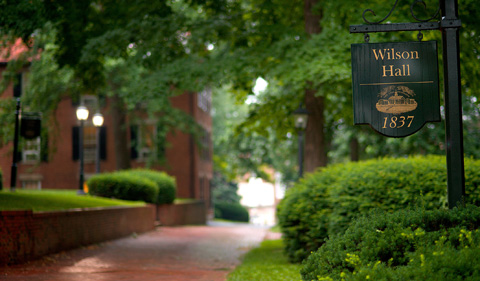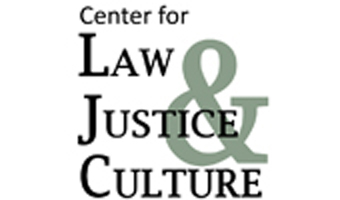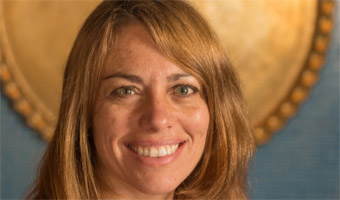The Center for Law, Justice & Culture’s law-related graduate course offerings for fall 2021 include both online and in-person courses for students in the M.A. in Law, Justice & Culture.
The fall offerings include core courses as well as electives on Slavery in the Americas, the Politics of Race, Crime and Media, Queer Theory, as well as several other history, political science and sociology courses.
The master’s degree focuses on critical analysis of law in relation to society, culture, politics and power and is offered on campus and online. The on-campus program is now open for fall 2022 entry, while the online program is now open for summer 2022 and Fall 2022 entry. (See admissions information and deadlines.)
Please contact CLJC M.A. Director Haley Duschinski for more information about the program or courses.
Law, Justice & Culture Core Courses for Fall 2022
LJC 6000: Proseminar in Law, Justice & Culture
Professor: Kirstine Taylor
Modality and Times: Online asynchronous
The proseminar exposes students to law and society studies from an interdisciplinary perspective. Students learn the theoretical traditions of law and society scholarship through readings from different disciplines in the social sciences and humanities. The wide range of readings provides students with knowledge of varied approaches to the study of law while demonstrating a common appreciation of the mutually constitutive relation of law and society.
LJC 6965: Legal Practice Workshop
Professor: Larry Hayman
Modality and Times: Online asynchronous
This course introduces the research, writing, and analytical skills that legal professionals need in their legal practice, including the basics of legal research and legal reference for a variety of print and electronic media.
Law, Justice & Culture Elective Courses for Fall 2022
HIST 5270: Slavery in the Americas
Professor: Mariana Dantas
Modality and Times: Online asynchronous
This course examines the lives and experiences of slaves of African origin and descent as revealed by themselves in slave accounts and other documents. It explores, in a comparative perspective, African and Afro-American agency and identity in various New World societies. This course is only open to CLJC M.A. Online students. Other students should please contact Director Duschinski for permission to enroll.
HIST 5531: Vikings – Saxons – Franks: Western Europe, 476-1066
Professor: Kevin Uhalde
Modality and Times: In person; Tuesday and Thursday, 9:30-10:50 a.m.
This course examines the formation of Germanic societies in the wake of the Roman Empire’s collapse in western Europe. It begins by surveying major transformations in political and legal institutions, economy and trade, and religious conversion. The focus then shifts to Franks in modern France and Germany, Saxons in Britain, and Scandinavians (better known as the Vikings) at home and abroad. Along with lectures and a textbook, students will read primary sources including contemporary chronicles, saints’ lives, and sagas.
HIST 5715: Sex, Crime and Deviance in Europe, 1200-1800
Professor: Michele Clouse
Modality and Times: In person; Monday and Wednesday, 3:05-4:25 p.m.
This course explores sexuality, deviance and crime in early modern Europe, contrasting imaginary crimes, e.g. witchcraft, with “real” crimes such as highway robbery and infanticide. It examines the impact of gender, sexual orientation, ethnicity, and class in the process of criminalization in European history, 1200-1800. It traces long-term changes in the definition, incidence and prosecution of particular crimes to changes in the economy, social structure, government, religion and culture.
POLS 5739: Politics of Race
Professor: Kirstine Taylor
Modality and Times: In person; Tuesday and Thursday, 11-12:20 p.m.
This course examines various, intricate relationships between race and politics in the United States. It starts with a basic introduction to the concept of race, its origins and evolution. Attention is paid early on to the contradictory projects of democracy and racial hierarchy, specifically, the enterprise of white supremacy. This course looks at past and present racial topographies, including, but not limited to, trends in partisanship, political ideology and voter turnout per racial group. It examines how the three branches of government have supported America’s war on drugs, and subsequently how this war has differentially impacted the American people on lines of race, gender, and class. It investigates how racial identity is shaped by varying economic, social and political contexts, and further how these identities can be mobilized for collective purposes. Students will think critically about what is at stake in adhering to or diverging from particular racial identities in the political and social arena, how racial identities are policed by group members, and lastly, what is at stake in defining racial authenticity. The last set of readings treats the ways racial anxieties are manipulated during electoral campaigns as a strategy for specific political gains.
POLS 5751: Critical Race Theory
Professor: Vince Jungkunz
Modality and Times: In person; Monday 6-8:40 p.m.
This course examines, analyzes and theorizes race and racism from a critical and politicized perspective. This rich theoretical perspective points out that racism is still a pervasive part of contemporary societies and seeks out effective ways to challenge racism’s existence and impact on various groups and societies. It examines Critical Race Theory as a theoretical and political alternative for understanding and criticizing racism in contemporary settings. Critical Race Theory critiques perspectives that claim far-reaching progress has been made combating racism. This course challenges students to think in new ways about contemporary manifestations of racism and explores innovative ways to challenge the widespread prevalence of racism.
SOC 5610: Crime and Media
Professor: Amanda Cox
Modality and Times: Hybrid; Monday and Wednesday 10:45-11:40 a.m. (Some classes will meet in person at the designated time.)
This course examines media representations of crime and criminal justice, as well as the relationship between the media and criminal justice institutions. Students investigate moral panics, crime myths, and crime’s contested cultural meanings; how media representations influence law and public policy; how media portrays special types of offenders; how media depicts and engages with crime victims; and how media represents and shapes the criminal justice institutions. Students learn and apply sociological theories regarding the relationship between media, crime and criminal justice.
SOC 5620: Sociology of the Courts
Professor: Ursula Castellano
Modality and Times: In person; Tuesday and Thursday 12:30-1:50 p.m.
This course is designed to introduce students to a sociological perspective on the importance and impact of the court system in American society. Students will examine the court’s structural and cultural features as well as how court officials create and move cases through to various institutional outcomes.
SOC 5640: Law in Societies
Professor: Bruce Hoffman
Modality and Times: Online asynchronous
This course explores the fundamental roles that law plays in organizing contemporary social life. It considers various ways of understanding law’s complex presence: how law shapes and enables routine social interaction, how law constructs differences among people and their actions, how law mediates and enforces power relationships, and how law matters for the kind of societies we have. Inquiries will examine official legal institutions and actors, but the class will emphasize how law works as a complex array of norms, symbols, discourses, and practices that infuse and shape all aspects of social life, from everyday social interaction to social movements and official legal institutions and actors. The course draws from the U.S. experience as well as historical, international, and transnational perspectives. This course is only open to CLJC MA Online students. Other students should please contact Director Duschinski for permission to enroll.
WGSS 5610: Queer Theory
Professor: Eve Ng
Modality and Times: Online hybrid; Tuesday 9:30-10:50 a.m. (All courses will be delivered virtually; some classes will meet virtually at the designated time.)
This course examines the intellectual and activist roots of queer theory, some of its most consequential statements, and current issues and debates within this body of literature.



















Comments